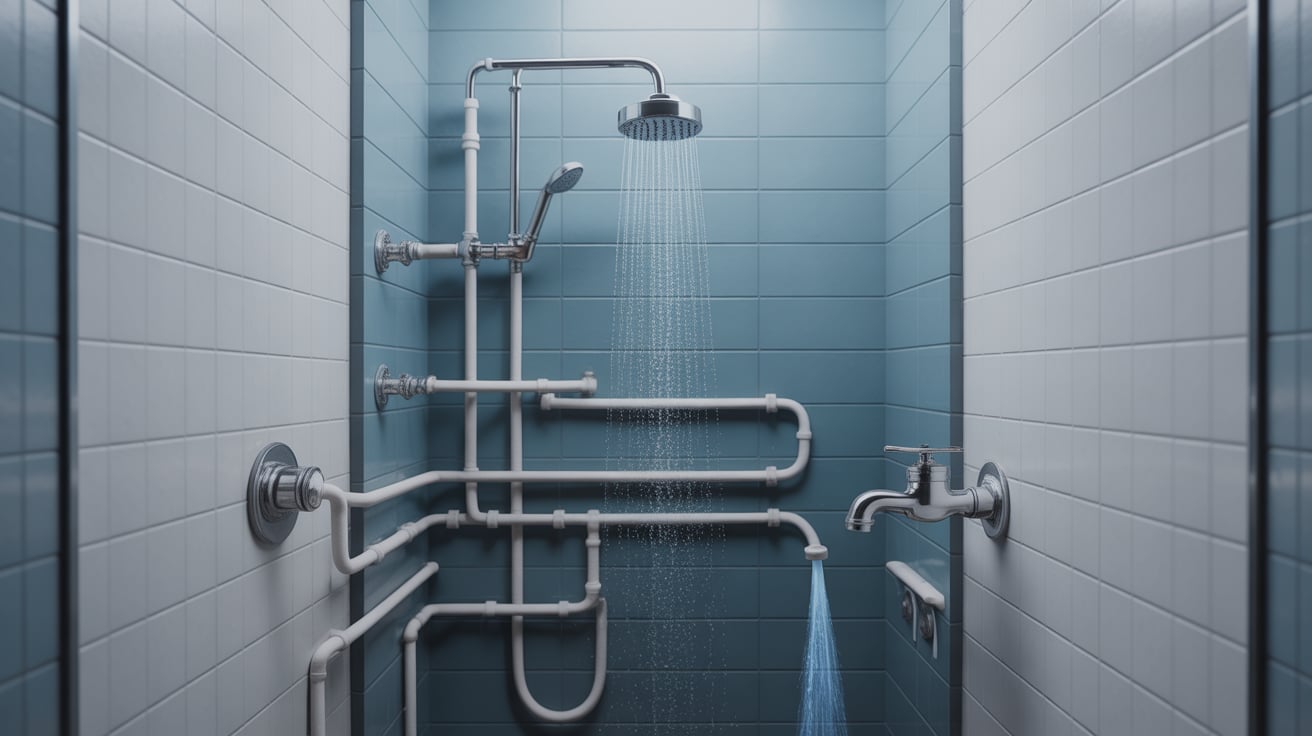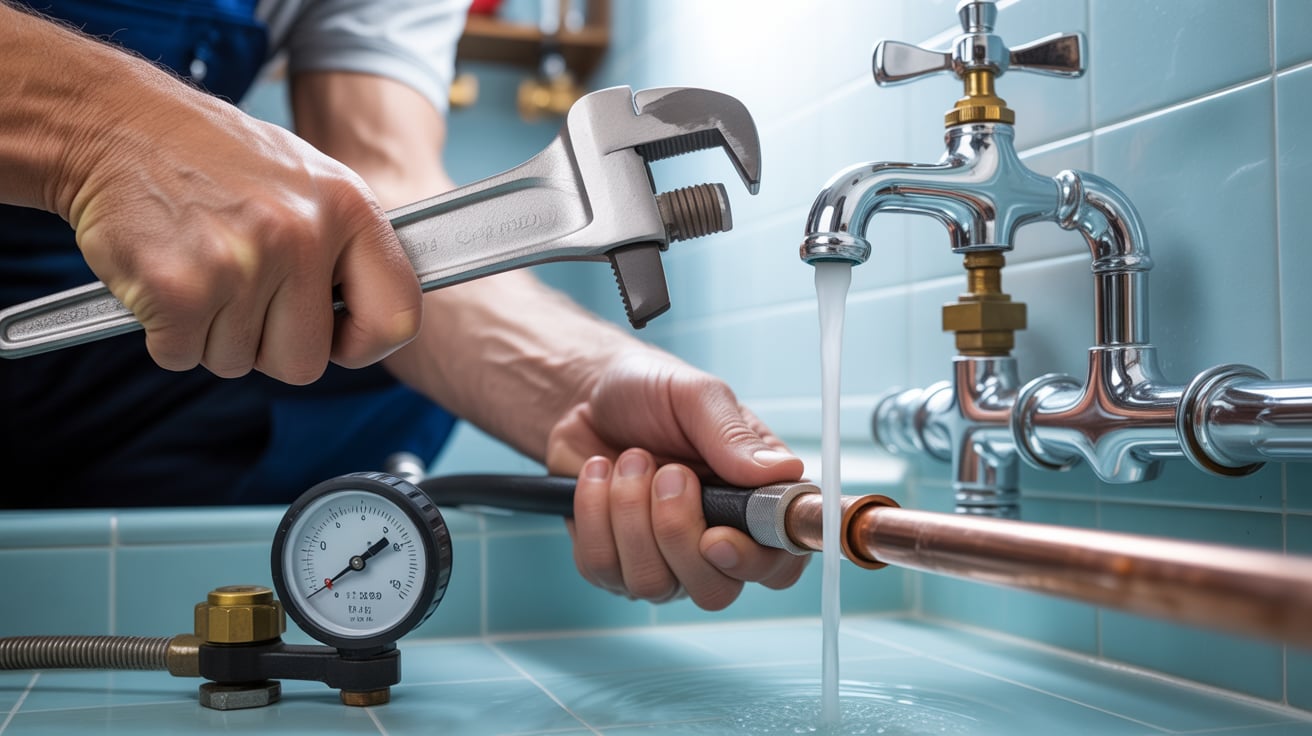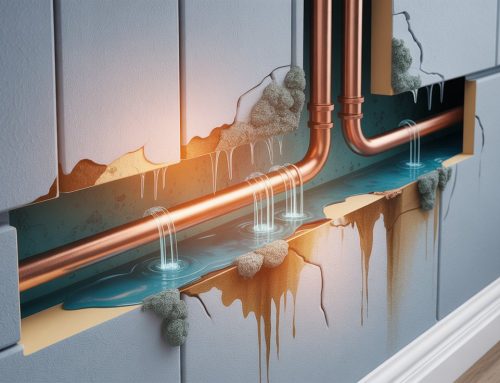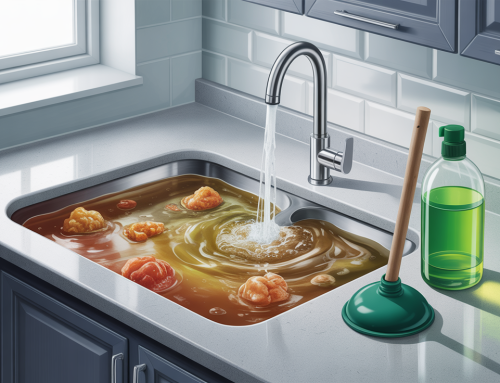Water Pressure Problems in Singapore Flats – Water pressure issues in Singapore flats can disrupt daily routines, from inconsistent showers to slow-filling washing machines. Given Singapore’s high-density housing and aging infrastructure, these problems are not uncommon. Understanding the causes and effective fixes is essential for residents to maintain comfort and functionality in their homes. This article explores the primary reasons behind water pressure problems in Singapore flats, practical solutions, and preventive measures, tailored to the local context as of August 17, 2025.
Understanding Water Pressure Issues
What is Water Pressure?
Water pressure refers to the force that pushes water through pipes to your taps and appliances. Optimal pressure ensures smooth water flow, while low or high pressure can indicate underlying issues.
Why It Matters in Singapore Flats
With many flats built decades ago, such as those under the Housing and Development Board (HDB), outdated plumbing and high-rise designs can contribute to pressure inconsistencies. The dense urban environment also strains water supply systems.

Water Pressure Problems in Singapore Flats – Causes & Fixes
Common Causes of Water Pressure Problems
1. Aging Plumbing Infrastructure
Impact on Flats
Older HDB flats, especially those over 30 years old, often have corroded or narrow pipes that restrict water flow. Rust and mineral buildup further reduce pressure over time.
Local Context
Many pre-1980s flats in Singapore may still use galvanized steel pipes, which are prone to deterioration.
2. High-Rise Building Dynamics
Pressure Variations
In high-rise flats, water pressure decreases with height due to gravity. Lower floors may experience high pressure, while upper floors struggle with low flow.
Singapore’s Scenario
With buildings often exceeding 20 stories, pressure regulation becomes challenging, especially during peak usage hours.
3. Clogged or Blocked Pipes
Common Culprits
Accumulation of limescale, debris, or sediment in pipes can obstruct water flow, a frequent issue in areas with hard water.
Local Relevance
Singapore’s water, though treated, may still leave mineral deposits in older plumbing systems.
4. Faulty Pressure Regulators
Role of Regulators
Pressure regulators control water flow into homes, but malfunctioning units can cause either too little or too much pressure.
Local Insight
Improper installation or lack of maintenance in some flats can lead to regulator failures.
5. External Supply Issues
PUB’s Role
The Public Utilities Board (PUB) manages Singapore’s water supply, but occasional maintenance or supply disruptions can affect pressure.
Current Context
As of August 2025, PUB may be conducting upgrades, potentially causing temporary pressure drops.
Practical Fixes for Water Pressure Problems
Immediate Solutions
Check Taps and Fixtures
Inspect for leaks or blockages in aerators and showerheads. Clean or replace them to improve flow.
Boost with a Pump
Installing a booster pump can increase pressure in low-flow areas, especially on higher floors.
Long-Term Repairs
Pipe Replacement
Replace old galvanized pipes with modern materials like PEX or copper to enhance durability and flow.
Professional Inspection
Hire a licensed plumber to assess and recalibrate pressure regulators or clear blockages.
Coordination with Authorities
- Contact HDB: For HDB flats, report issues to the Town Council or HDB for assistance with communal plumbing.
- PUB Support: For supply-related problems, lodge a complaint with PUB via their hotline or online portal.
Preventive Measures
Regular Maintenance
- Annual Checks: Schedule plumbing inspections to catch issues early.
- Clean Fixtures: Regularly descale taps and showerheads to prevent buildup.
Upgrades and Retrofitting
- Install Pressure Valves: Add pressure-reducing valves on lower floors to manage excess pressure.
- Upgrade Pipes: Consider retrofitting older flats with modern plumbing during renovations.
Educate Residents
Encourage reporting of pressure issues promptly to HDB or PUB to ensure timely repairs.
Conclusion
Water pressure problems in Singapore flats stem from aging infrastructure, high-rise challenges, and occasional supply issues, but they can be managed with the right approach. Immediate fixes like cleaning fixtures and installing booster pumps, combined with long-term solutions like pipe replacement, can restore normalcy. Preventive maintenance and collaboration with HDB and PUB are key to avoiding future disruptions. By staying proactive, residents can enjoy consistent water pressure and maintain their homes’ functionality.
FAQs
General Questions
- What causes low water pressure in Singapore flats?
Aging pipes, high-rise dynamics, clogs, faulty regulators, or supply issues are common causes. - Why do upper-floor flats have lower pressure?
Gravity reduces pressure as height increases in high-rise buildings. - Can high water pressure be a problem?
Yes, excessive pressure can damage pipes and fixtures, especially on lower floors. - How does PUB affect water pressure?
PUB’s maintenance or supply adjustments can temporarily alter pressure. - Are all flats in Singapore affected?
Older HDB flats are more prone, but issues can occur in any building depending on maintenance.
Detection and Diagnosis
- How can I check for low pressure myself?
Test water flow at different taps; weak streams indicate low pressure. - What does a clogged pipe sound like?
You might hear gurgling or sputtering from taps. - Can hard water cause pressure issues?
Yes, limescale buildup from hard water can narrow pipes and reduce flow. - How do I know if my regulator is faulty?
Inconsistent pressure across all taps suggests a regulator problem. - Should I call HDB or PUB first?
Contact HDB for flat-specific issues; PUB for supply-related concerns.
Immediate Actions
- Can I fix a clogged pipe myself?
Clean aerators or showerheads, but avoid deep pipe work without expertise. - Will a booster pump help my flat?
Yes, it’s effective for low-pressure upper-floor units. - How do I report a pressure issue?
Use HDB’s online portal or PUB’s hotline (1800-225-2782). - What if my neighbor has the same issue?
It may indicate a communal supply problem; report it collectively. - How long do repairs take?
Minor fixes take hours; major pipe work may take days, depending on coordination.
Prevention and Maintenance
- How often should I descale my pipes?
Annually or as needed, based on water hardness and usage. - Can I upgrade my flat’s plumbing?
Yes, with HDB approval during renovations, using modern materials. - Are pressure valves expensive?
Costs vary; consult a plumber for a quote tailored to your flat. - Does PUB offer free checks?
PUB provides support for supply issues; check their website for details. - How can I avoid future problems?
Regular maintenance, timely reporting, and upgrades are key preventive steps.



